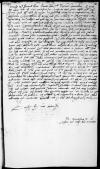Quod toties tot meis litteris Generositati Vestrae molestus sum, quaeso non aegre ferat. Cogit me necessitas, quam Generositas Vestra bene novit, ut scribendo morosior et impudentior sim, praesertim cum quodammodo non a ⌊caesarea maiestate⌋ solum, verum etiam a ⌊serenissimo domino meo⌋ derelictus mihi videor. Ad quem igitur in hac rerum angustia confugiam, praeter Generositatem Vestram, quam mihi apprime affectam cognovi, invenio neminem. Dabit itaque his meis importunitatibus veniam. Quae me impraesentiarum potissimum ad scribendum causa
compulerit, scio Generositatem Vestram pro sua prudentia bene intelligere. cf. Pl. Rud. 975-981 mare quidem commune certost omnibus. TR. Adsentio: / qui minus hunc communem quaeso mi esse oportet vidulum?/ in mari inventust communi. GR. Esne impudenter impudens?/ nam si istuc ius sit quod memoras piscatores perierint./ quippe quom extemplo in macellum pisces prolati sient,/ nemo emat, suam quisque partem piscium poscant sibi,/ dicant, in mari communi habent ⌊Mare (ut Plautinis verbis utar) commune quidem est omnibus, sed non macellumcf. Pl. Rud. 975-981 mare quidem commune certost omnibus. TR. Adsentio: / qui minus hunc communem quaeso mi esse oportet vidulum?/ in mari inventust communi. GR. Esne impudenter impudens?/ nam si istuc ius sit quod memoras piscatores perierint./ quippe quom extemplo in macellum pisces prolati sient,/ nemo emat, suam quisque partem piscium poscant sibi,/ dicant, in mari communi habent ⌋,
cf. Pl. As. 198-199 diem aquam solem lunam noctem, haec argento non emo:/ cetera quae volumus uti Graeca mercamur fide; Adagia No. 727 Graeca fides ⌊Graeca hinc mercantur fidecf. Pl. As. 198-199 diem aquam solem lunam noctem, haec argento non emo:/ cetera quae volumus uti Graeca mercamur fide; Adagia No. 727 Graeca fides ⌋.
cf. Pl. As. 202 semper oculatae manus sunt nostrae, credunt quod vident; Adagia No. 731 Osculatae manus ⌊Habent hic omnes oculatas manus, credunt, quod videntcf. Pl. As. 202 semper oculatae manus sunt nostrae, credunt quod vident; Adagia No. 731 Osculatae manus ⌋. Olim praesente ⌊caesarea maiestate⌋ ⌊Augustae⌋ auguste vivebam, nunc autem anguste, et haec ⌊Angusta(!)⌋ me nuper annulis meis spoliavit[1], brevi etiam catenula mea, quae tenui adhuc dependet filo. Quodcumque est, feram ob amorem ⌊caesareae maiestatis⌋ patienter, domi non ferrem, modo sciam sic esse mentem suae maiestatis, si etiam me vendere oportuerit omnia et cum vita esse in discrimine. Quocumque ⌊caesarea maiestas⌋ voluerit, patiar, nam me ⌊serenissimus dominus meus⌋ ⌊suae maiestati⌋ dedit mancipium. Sed haec hactenus.
Rogavit me ⌊nuntius⌋ ⌊Valachi⌋[2], ut pro eo ad Generositatem Vestram intercederem. Qui, quoniam eius dominus cum ⌊serenissimo domino meo⌋ nunc aliquantisper bene convenit[3], dignus mihi, quem Generositati Vestrae commendarem, videbatur. Conqueri mihi visus est de levi expeditione. Sciet Generositas Vestra, quomodo aut quid in his agendum etc. Ultimum et novissimum est, quod ardentissime cupio, ut Generositas Vestra quantocius huc ad nos vinculatos in claustris desideratissime faustiter adveniret. Cuius adventum Deus Optimus Maximus felicissimum faciat et cito etc. Si commode Generositas Vestra poterit post nactam aliquam opportunitatem, quaeso me ⌊caesareae maiestati⌋ domino meo clementissimo suppliciter commendet et dicat me paratum usque ad mortem ad quaevis servitia obeunda ad ⌊suae maiestatis⌋ mandatum, prout etiam ⌊sua caesarea maiestas⌋ iam quater experta est[4], et in omnibus sic me diligentem et fidelem, ut aliquem,
cf. Adagia No. 652 A teneris unguiculis ⌊qui ab unguiculiscf. Adagia No. 652 A teneris unguiculis ⌋ in aula ⌊suae maiestatis⌋ educatus est, inveniet.
Commendo me Generositati Vestrae.


 ONB, Cod. 13.597, f. 18v
ONB, Cod. 13.597, f. 18v